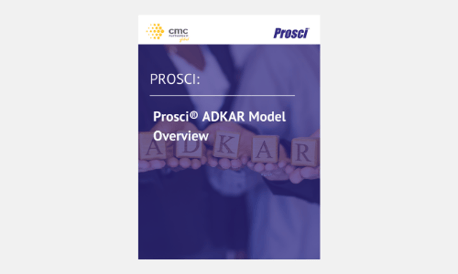In today's business environment, technological innovations are disrupting all business sectors and redefining the industry boundaries. In reaction, many companies are incorporating new technology into ambitious organisation-wide transformational changes designed to enhance performance, improve their position against rivals and new entrants, and to keep up with regulatory requirements and investors' demands.
Historically, if and when such large-scale transformations succeed, they often build strong internal alignment around a vision and strategy and establish exceptional execution capabilities which will in turn radically augment critical business drivers such as sales and revenue growth, customer satisfaction, capital and labour productivity, cost efficiency, and operational effectiveness. But there is a catch, transformational changes typically have dreadfully low success rates.
Thinking of the why
In our experience, executives tend to focus too narrowly and superficially on the delivery of individual initiatives causing them to neglect or oversimplify the change journey that every impacted employee will need to undertake in each change. For instance, it is not uncommon to see transformation leaders having a "training is everything" mindset and having resources prioritised around training activities. Unfortunately though, being trained in something new often does not make an employee confident and competent enough to change from their old familiar way of working. Gaining knowledge is not the same as gaining ability.
Many companies are therefore now looking to re-skill existing employees as the current labour market is not able to fully meet demands for technology and specific management skills. However, without conducting proper competency and training needs analyses and proficiency tests, employees are often rushed into training/leadership/professional development programs. They are also unrealistically expected to perform at a proficiency level immediately after training. Four problems can arise here:
- When showing up for training, employees often have zero or low awareness of why they are there and what this change is all about. They are more interested in lunch and a chance to get away from the daily grind.
- Formerly high performing employees are set unrealistic expectations about their ability to learn and the time it will take them to acquire the required levels of proficiency in the new ways of working demanded by the change.
- The new processes trained are poorly designed and often fail to reflect the reality of the front line interactions with customers that employees have to manage daily. In Asia business analysis and a genuine understanding of the customer experience is especially lacking in this context.
- Line managers themselves, may not have the domain expertise or new solution experience to effectively coach employees and help them to perform at the required proficient levels in their new role.
When leaders and managers mistakenly equate knowledge as ability, they will have a false sense of their employees' competency resulting in unrealistic expectations of their performance. If this misconception is perpetuated and becomes ingrained into the organisation's management system, the systemic effects can be disastrous. The trust and professional bond between employees and their line managers will quickly be dissolved. Consequently, not only will the transformation efforts fail to deliver their expected business benefits, but the chain of events can lead to good employees choosing to leave, destroying its most important resource.
To be clear, we are not saying that training should be disregarded. Training is just a part of the bigger picture and. helping employees to become fully productive agents in the future state takes more than just training. The Prosci® ADKAR model can tell us why.
Download: Prosci ADKAR® Model: Complete eBook
The milestones that a person experiences during a change journey are captured in ADKAR. It is a stepwise, building block model where each phase must be achieved in sequence, in order for changes to be real and sustainable. Each step in the ADKAR framework is also typically supported by specific change management plans and activities:
- Awareness of the need for change. This is usually built through clear and early communications related to an organisational change, repeated often.
- Desire to support the change through engagement and participation. Desire is making a personal choice to change and can be forged through active and visible sponsorship and effective resistance management
- Knowledge about how to change. Training and coaching provides the practical information and guidance to help the individual learn the correct practices required by the change.
- Ability is the demonstrable level of proficiency required by each person in the new way of working and is often the outcome of additional coaching, support and regular repetitive practice.
- Reinforcement is about ensuring that the change is sustained through adoption measurement, corrective action and recognition of successful change
Without an understanding of the ADKAR model, it is easy to understand why the odds of transformation success are so low. For every complex transformation to be successful, change management best practices needs to take place at three levels: individual, organisational/initiatives and throughout the various levels within the enterprise. If leaders do not even know how to create the momentum required to enable and sustain change at the lowest and most foundational level (i.e. with one person), how will they avoid the numerous common pitfalls* of transformation failures?
*Common pitfalls that lead to transformation failures include:
- lack of employee engagement
- inadequate sponsorship
- weak or no coalition to guide action
- inability to cultivate the appropriate mindset and behaviours required to sustain the transformation
Want to Develop Your Change Management Capability?
If you would like to learn about Prosci's change management methodology and become a successful change leader, register for our virtual instructor-led, three-day learning experience and gain a world leading certification. During the course, you will learn how to apply Prosci’s methodology to an existing project and network with other change leaders. Download our Change Management Practitioner's Programme brochure to find out more about the course.




